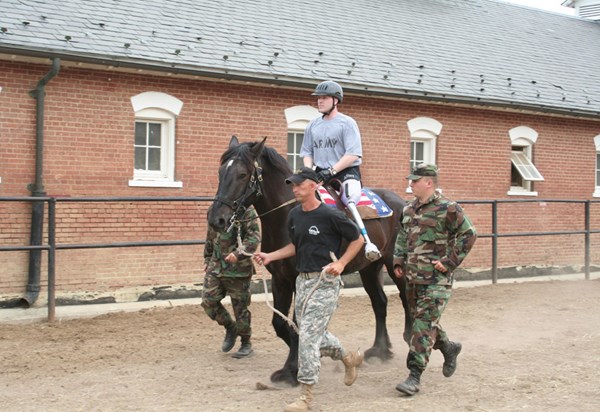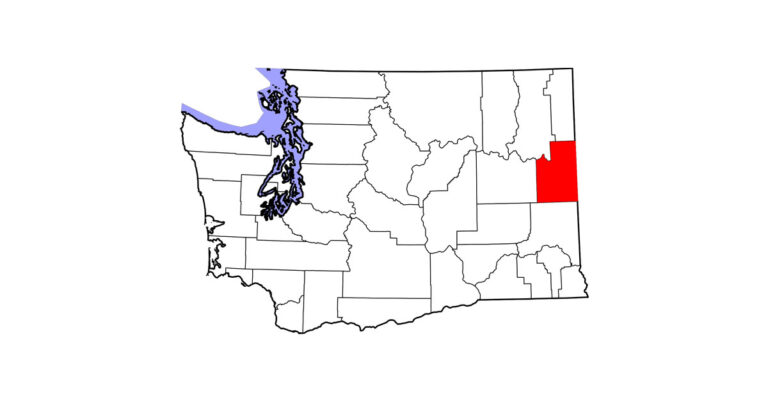 A recent study showed that involvement with horses contributed to a significant decrease in PTSD symptoms of veterans. | © lisa burgess/stars and stripes
A recent study showed that involvement with horses contributed to a significant decrease in PTSD symptoms of veterans. | © lisa burgess/stars and stripesWe all know that therapeutic riding benefits people with physical and mental disabilities. But could it bring relief to military veterans suffering from combat-induced post-traumatic stress disorder? Yes, according to researchers at the University of Missouri–Columbia College of Veterinary Medicine.
The team was funded by a grant from the Horses and Humans Research Foundation and led by Rebecca A. Johnson, PhD, RN, FAAN, FNAP, director of the school’s Research Center for Human–Animal Interaction. It set out to evaluate the effect of riding for people with symptoms of PTSD, such as emotional regulation, anxiety and inability to engage with family members.
Thirty-eight veterans, from Vietnam veterans who had been struggling with PTSD for 30 years to those more recently having left active duty, participated. They were randomly split into two groups—one starting the riding program immediately and a control group starting six weeks later.
Each participant was scored using a post-traumatic distress questionnaire typically used by the Harry S. Truman Memorial Veterans’ Hospital in Columbia, Missouri. They were evaluated three times: at the start, after three weeks and after six weeks. Researchers also conducted exit interviews with each participant.
The veterans completed six one-hour sessions with each session including grooming, saddling, unsaddling, riding and talking with the horses. Lessons followed a standardized curriculum of learning basic horsemanship from whoa and go commands to steering and, eventually, trotting. At the end of each session, veterans recorded their experiences in a personal riding diary.
“The intervention was effective,” Dr. Johnson says. Scores based on the questionnaire showed a statistically significant decrease in PTSD symptoms. Input from physicians and hospital caregivers also showed a clinically significant improvement.
Many of the participants, she noted, had been in cognitive behavior therapy for years yet showed benefits after just three sessions of horseback therapy.
More important in Dr. Johnson’s view, the veterans’ own experiences supported the numerical data. Participants expressed enjoyment when interacting with the horses and learning to ride and appreciated the companionship of fellow veterans, researchers and riding center staff.
While the research team continues to analyze the qualitative data from the riders’ diary entries, they’re encouraging doctors at the hospital to support therapeutic riding as a treatment for PTSD. Dr. Johnson notes that it can fall under the heading of “recreational therapy,” which doctors can prescribe. As such, it can be paid for under insurance or veterans’ benefits.
This article originally appeared in the August 2016 issue of Practical Horseman.










